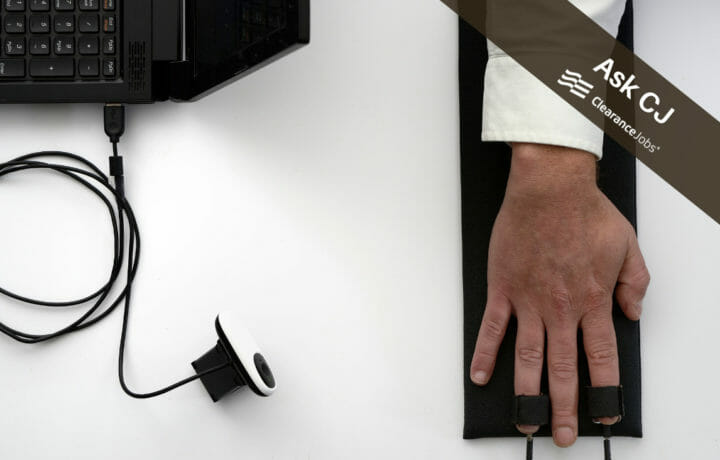Polygraphs, commonly known as lie detector tests, are often used in the process of obtaining security clearances for certain jobs within government agencies or private companies handling sensitive information. These tests are designed to measure physiological responses such as heart rate, blood pressure, respiration, and skin conductivity, which are believed to change when a person is being deceptive.
Your 1st poly failed due to “an unacceptable reason”. Can you have a second chance at sitting for the poly?
“I had my first polygraph at the NSA yesterday and failed, but the reason given is unacceptable and confusing to me. The officer asked me three times if I had any serious criminal records or history of drug use. I responded ‘NO’ without any hesitation because I truly have no criminal records (not even a speeding ticket) and have never used drugs in my entire life. However, the officer claimed that I was physiologically trying to affect the results when asked about drug use and urged me to confess anything I hadn’t disclosed in my SF-86 to move forward smoothly. I was confused by this, as I genuinely have nothing to hide. I just focused on answering the polygraph questions, trying to keep my breathing normal and avoiding unnecessary thoughts or fears. Even though I repeatedly, firmly, and politely told the officer I had nothing to hide regarding drug use and was following his instructions to the best of my ability, he continued to claim that I was intentionally trying to manipulate the test results. As a result, the polygraph test did not proceed to the CI questions and was stopped. The officer instructed me to be honest and follow instructions in the next polygraph test and to immediately report to my recruiter and security officer if I plan any foreign travel. I am feeling embarrassed and frustrated by this outcome, especially since I failed the polygraph for a reason I cannot accept, and I have no other way to prove my honesty and innocence. What should I expect next? Will I simply be denied, or is there a chance for me to retake the polygraph?”
Many on ClearanceJobsBlog describe similar experiences with agencies within the Intelligence Community. Continue on and try to relax for your next appointment under the wires. Most applicants have the opportunity to re-take a single failed polygraph, and it’s not uncommon for applicants to fail their initial polygraph examination. Adjudicative guidance indicates that individuals shouldn’t be denied a clearance based on polygraph issues alone.
Purpose of Polygraphs in Security Clearances
- Verification of Background Information: The polygraph helps validate the accuracy of the information provided by the candidate in their security clearance application, such as criminal history, drug use, and financial stability.
- National Security: For roles that involve access to classified information or national security matters, polygraphs are used to ensure that individuals are trustworthy and free from vulnerabilities that could be exploited by adversaries.
- Deterrence: The possibility of undergoing a polygraph can deter individuals with malicious intentions from applying for positions that require high-level clearances.
What to Expect During a Polygraph Test
- Pre-Test Interview: The examiner will explain the process, discuss the questions to be asked, and ensure the examinee understands the procedure.
- Baseline Measurements: The examiner will establish baseline physiological readings by asking non-threatening questions.
- Questioning Phase: The actual test involves a series of questions related to the candidate’s background and the specific concerns from the info you provided on teh SF-86, such as inquiries about espionage, terrorism, or unauthorized disclosure of information.
- Post-Test Interview: After the test, there may be a discussion about the responses and any physiological reactions noted during the questioning phase.
Common Concerns and Misconceptions
- Accuracy: While polygraphs are not infallible, proponents argue they are a valuable tool when combined with other vetting methods. Critics point out that physiological responses can be influenced by factors other than deception, such as anxiety or medical conditions.
- False Positives/Negatives: There is a risk of false positives (innocent individuals appearing deceptive) and false negatives (deceptive individuals appearing truthful). Examiners are trained to interpret results carefully and consider them alongside other investigative findings.
- Legal and Ethical Considerations: The use of polygraphs in employment screening is governed by laws and regulations, which vary by country and jurisdiction. In the United States, for example, the Employee Polygraph Protection Act restricts the use of polygraphs by private employers, with certain exemptions for security-related positions.
Tips for Candidates
- Be Honest: The best approach is to be truthful throughout the entire security clearance process.
- Stay Calm: Try to remain relaxed and composed during the test to avoid unnecessary physiological reactions.
- Prepare Mentally: Understand that the polygraph is just one part of the overall security clearance process. Confidence and clarity about your background can help alleviate stress.
Polygraph tests can be a daunting aspect of securing a job that requires high-level clearance, but understanding their purpose and preparing adequately can help candidates navigate the process more confidently.
This question was posed from a subscriber at ClearanceJobsBlog.com, where you can read and discuss government security clearance process, how to get a security clearance job, and background investigations issues.
Much about the clearance process resembles the Pirate’s Code: “more what you’d call guidelines than actual rules.” This case-by-case system is meant to consider the whole person, increase process security, and allow the lowest-risk/highest-need candidates to complete the process. This article is intended as general information only and should not be construed as legal advice. Consult an attorney regarding your specific situation.




